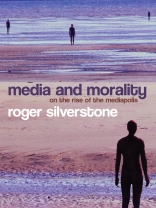Roger Silverstone’s compelling new book places the global media at the heart of the moral future of civilisation. It argues that the media (the press, broadcasting, the Internet and increasingly peer-to-peer technologies and networks) have a profound significance for the way in which the world is understood by its citizens. It also argues that without a clear understanding of that significance, and without a critique of the way in which the media go about their daily business, we are likely to see an erosion in the capacity of human beings to understand and respect each other, especially those whom they see and hear only in their mediation.
In a world of increasing polarisation and demonisation, the media have a powerful role to play. They can reinforce or they can challenge that polarisation. The book proposes that we should think of the global media as a mediapolis, a single space of political and social communication, in which the basis for the relationships between neighbours and strangers can be either constructed or destroyed. The mediapolis is a moral space, a space of hospitality, responsibility, obligation and judgement. And questioning its present and future requires attention to issues of media justice, media literacy and media regulation.
Media and Morality is essential reading for all students and scholars of the media but will be of equal fascination to anyone interested in the workings of our modern world.
Table des matières
Preface and Acknowledgements vi
1 Morality and Media 1
2 Mediapolis or the Space of Appearance 25
3 The Rhetoric of Evil 56
4 Contrapuntal Cultures 80
5 The Mediapolis and Everyday Life 106
6 Hospitality and Justice 136
7 Regulation and Literacy 162
Notes 189
References 199
Index 207
A propos de l’auteur
Roger Silverstone was formerly Professor of Media and Communications at the London School of Economics and Political Science.












